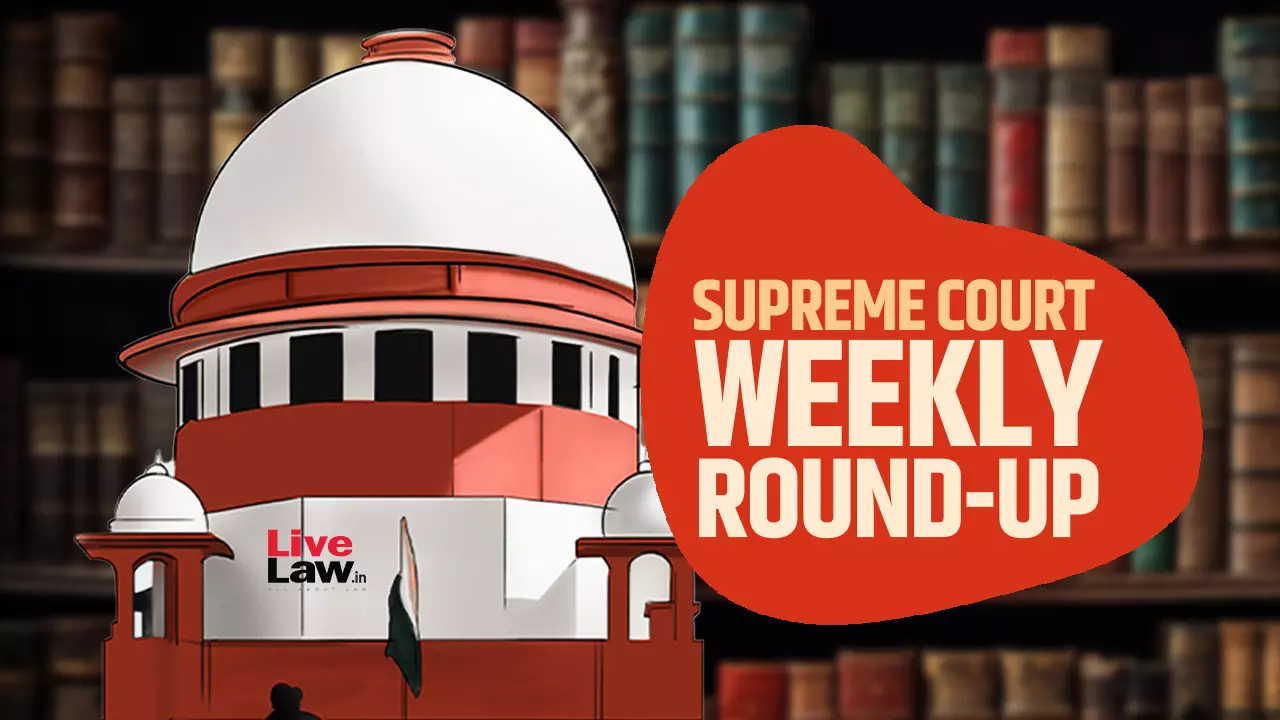Supreme Court Weekly Round-up: March 03, 2025 To March 09, 2025
Amisha Shrivastava
11 March 2025 10:08 AM IST

Next Story
11 March 2025 10:08 AM IST
Nominal IndexCitationsIn Re Recruitment of Visually Impaired In Judicial Services v. The Registrar General The High Court of Madhya Pradesh, SMW(C) No. 2/2024 2025 LiveLaw (SC) 274Maatr Sparsh An Initiative By Avyaan Foundation v. Union of India & Ors. | Writ Petition (Civil) No.950/2022 2025 LiveLaw (SC) 275State of Goa & Anr. v. Namita Tripathi 2025 LiveLaw (SC) 276Sharmila Velamur...
